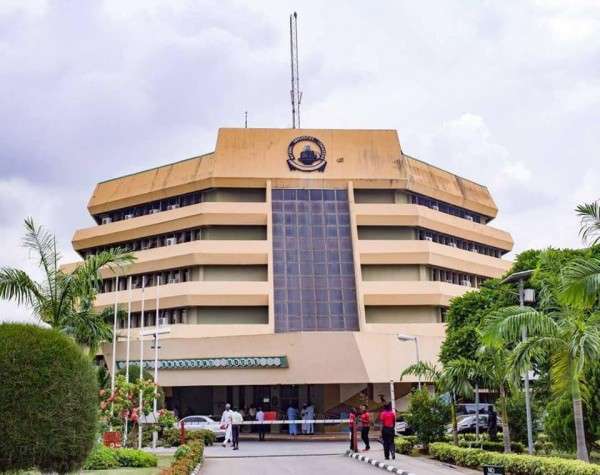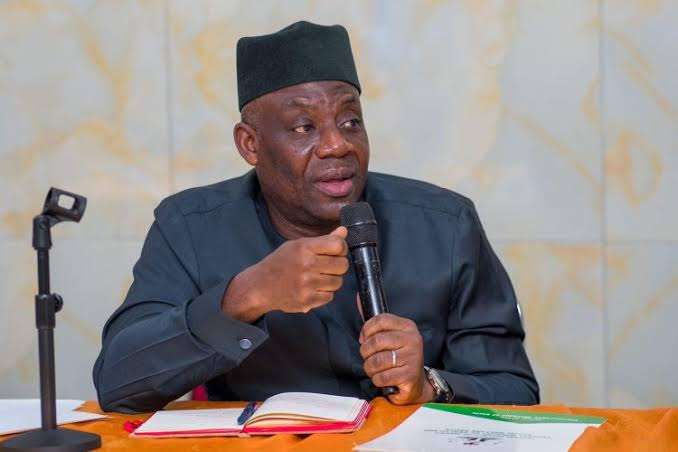By Stephanie Shaakaa
Power, when wielded without accountability, becomes a weapon. And in Nigeria’s Senate, that weapon is often aimed not at the enemies of progress but at the very principles of democracy. From reckless suspensions to self-serving legislations, from silencing dissent to shielding corruption, the Senate has become a fortress of unchecked power, where political elites operate with impunity, insulated from the very people they are supposed to represent.
The recent recommendation to suspend Senator Natasha Akpoti-Uduaghan for six months over allegations of misconduct is a glaring example of how power is abused in Nigeria’s upper legislative chamber. The speed with which this decision was reached is nothing short of astonishing. The committee sat just yesterday, and in less than 24 hours, without any adjournment, they concluded their assignments and suspended her. Meanwhile, there are bills that have been gathering dust for years some never even make it past the first reading. But when it comes to silencing a senator who refuses to play by the old boy club rules, the Senate suddenly discovers efficiency. If this is not bullying, I don’t know what is.
This is not about innocence or guilt; it is about selective justice. The same institution that has been notoriously slow to investigate and punish its own members for corruption or gross misconduct suddenly finds the willpower to act swiftly when it serves their interests. If the Senate were truly interested in upholding integrity, it would first clean its own house. It would open investigations into the numerous cases of fraud, budget padding, and abuse of office among its ranks. But it does not, because accountability has never been its priority power is.
Consider the sheer hypocrisy. This is an institution that routinely grants itself outrageous allowances while telling ordinary Nigerians to endure economic hardship. Senators live in luxury, spending billions on exotic cars, lavish offices, and overseas trips, while millions struggle to afford food and basic healthcare. When it comes to making decisions that could genuinely transform the country electoral reforms, anti-corruption laws, policies that empower the youth suddenly, everything takes time. There will be committees, subcommittees, public hearings, and endless “reviews.” But when it’s time to protect their interests or eliminate an outspoken colleague, the Senate moves at lightning speed.
The Senate has become a tool for political witch-hunting, where suspensions and investigations are weaponized against those who refuse to bow to the cabal. Senators who ask tough questions, who expose corruption, who demand reforms these are the ones who mysteriously find themselves facing “disciplinary actions.” This is not just an attack on individuals it is an attack on democracy itself. When lawmakers are punished for speaking up, it sends a chilling message: obedience is rewarded, defiance is punished.
This country needs serious reforms in the way its legislature operates. There must be strict legal limits on how the Senate can discipline its members to prevent abuse. Any disciplinary action must be subject to independent judicial review. Nigerians must demand more transparency every Senate decision, especially those involving suspensions and financial allocations, must be made public. The idea that Senators accused of corruption or misconduct can simply hide behind legislative immunity must end. There should be no special treatment, no sacred cows.
The Nigerian people must stop viewing the Senate as an untouchable institution. It is not a monarchy. These are elected officials, not rulers. Civil society, the media, and ordinary citizens must consistently challenge its excesses and demand justice and fairness. A democracy cannot thrive when its lawmakers see themselves as untouchable. The Nigerian Senate, as it stands today, is a monument to power abuse, where personal interests trump public good, where opposition is crushed, and where justice is dispensed selectively.
The question is no longer whether change is needed the question is whether Nigerians will demand it. Because if the people do not rise to challenge this abuse of power, then the Senate will continue to operate like a cartel, accountable to no one but itself. And that is not democracy it is a dictatorship in disguise.
If the Senate wants to prove it is not an exclusive club of untouchables, let it show the same speed and determination in passing laws that benefit Nigerians as it does in silencing its own. Until then, it remains what it has become a house of power drunk men, shielding their own and crushing whoever dares to stand alone.
Stephanie Shaakaa writes from the University of Agriculture, Makurdi, Benue State.









One Response
Your article helped me a lot, is there any more related content? Thanks!